Hello, I am Jinta from Japan. This time, I would like to show you how to make “Suman”, a popular Filipino sweet using ingredients available in Japan.
I learned about the existence of “suman” from a Filipino friend. In the Philippines, there is a custom called “Meryenda,” which is similar to the snack time in Japan, so the suman is loved as an accompaniment to “snack” or for breakfast. The sticky texture of the glutinous rice, the flavor of coconut milk, and its filling properties make it an ideal snack.
The basic ingredients for suman are simple: glutinous rice, coconut milk, sugar, and salt! These are lightly simmered, rolled in banana or coconut leaves, and steamed. Yes! It is the Japanese “chimaki”, isn’t it?
Since they are so similar, I looked up their history on the Internet, and as far as I can tell, both “suman” and “chimaki” were born in the Philippines and Japan, respectively. It is interesting to know that the idea of using plant leaves to transfer the aroma when steaming is the same (^^♪
This time, I will introduce how to make “suman” with the some pictures. Banana leaves are hard to find in Japan, so I will use bamboo grass leaves. Let’s get started!
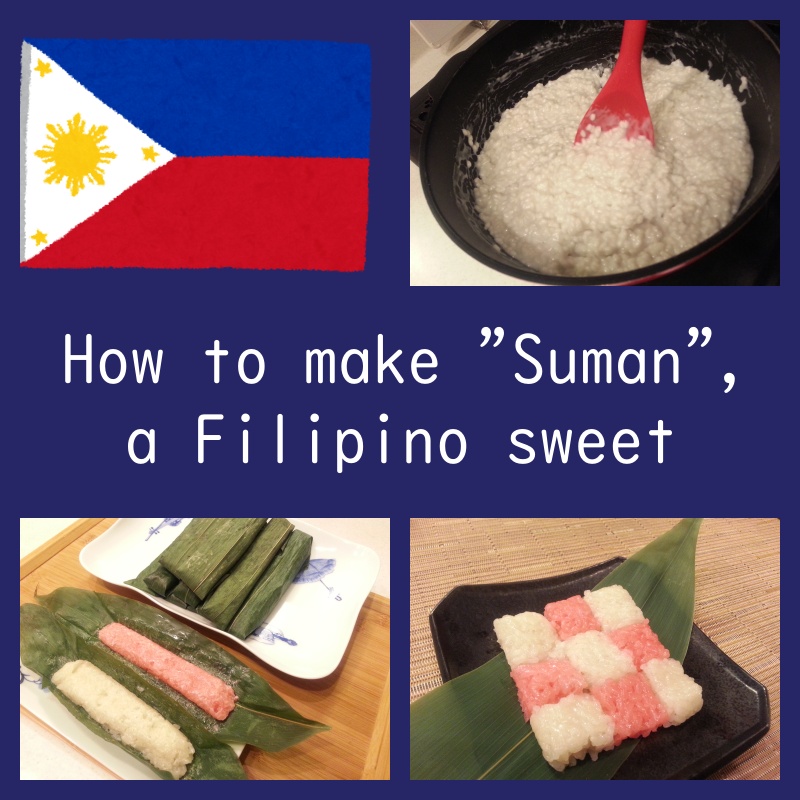
Philippines "Suman" Ingredients
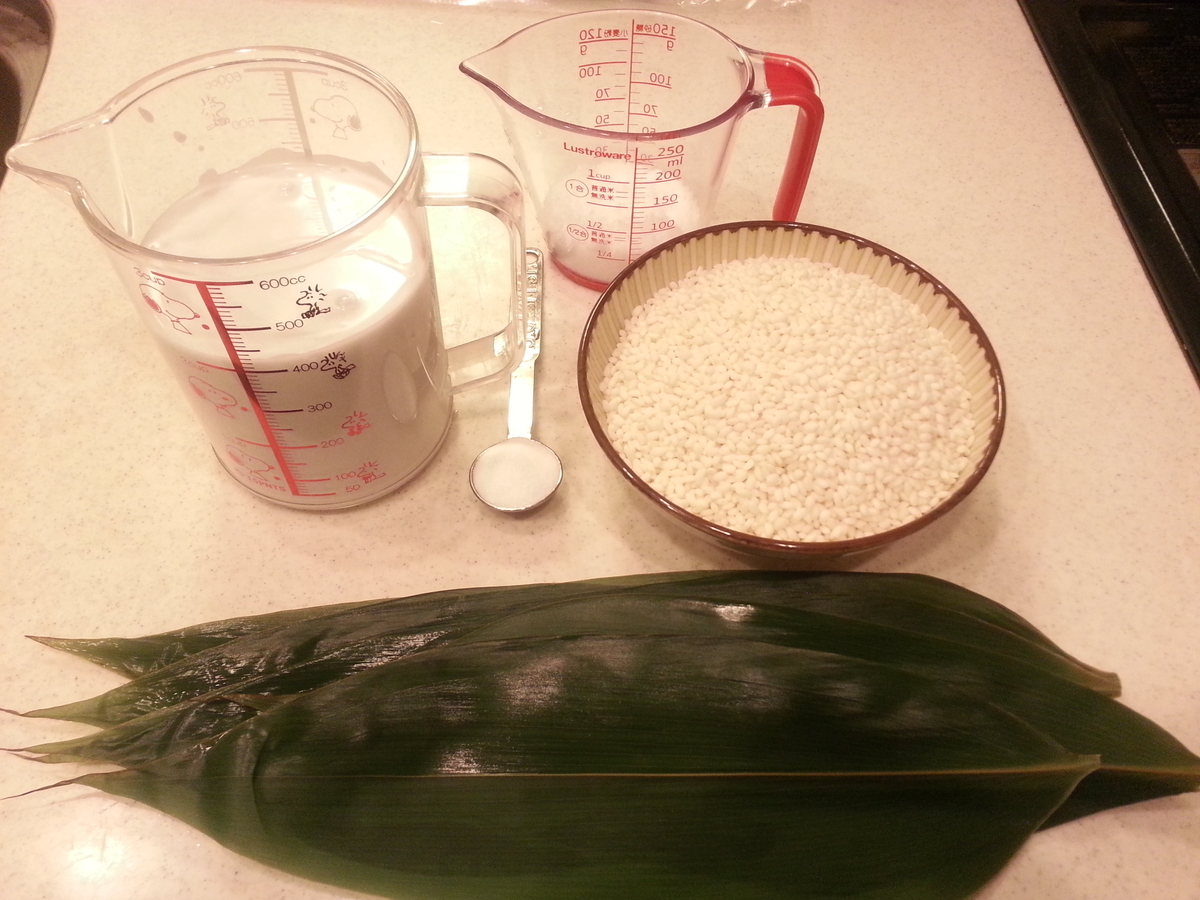
- 2 cups (400 ml) glutinous rice
- 2 cups (400 ml) coconut milk
- 1/4 cup sugar
- 1 teaspoon salt
- bamboo grass leaves
Glutinous rice and coconut milk are easy to remember because they are equal in volume (not weight). But it doesn’t matter if you go back and forth a little. Adjust the sugar to your liking. In the Philippines, the amount of sugar in the suman itself should be reduced, since it is often sprinkled with sugar or sweetened with coconut sauce. Salt is a personal must. It tastes better with salt.
Bamboo leaves or bamboo bark is good for flavor. If you don’t have any, you can substitute a cookie sheet. I purchased bamboo leaves at the market. You can also buy them on the Internet.
▼Check out “bamboo leaves”
You can also buy coconut milk at places like Kaldi. If you want to save yourself the trouble of looking for it, you can mail order it.
▼Check out Coconut Milk!
How to make Filipino "Suman".
- Wash glutinous rice and drain in a colander. Wash the surface of the bamboo leaves.
- Heat coconut milk, sugar, and salt in a frying pan. When the mixture comes to a boil, add the glutinous rice and fry for 5 to 10 minutes until sticky.
- Remove from heat and wrap in bamboo leaves (or cookie sheet).
- Steam for 50-60 minutes using a steamer.
Explanation of how to make it with pictures
Wash glutinous rice lightly.
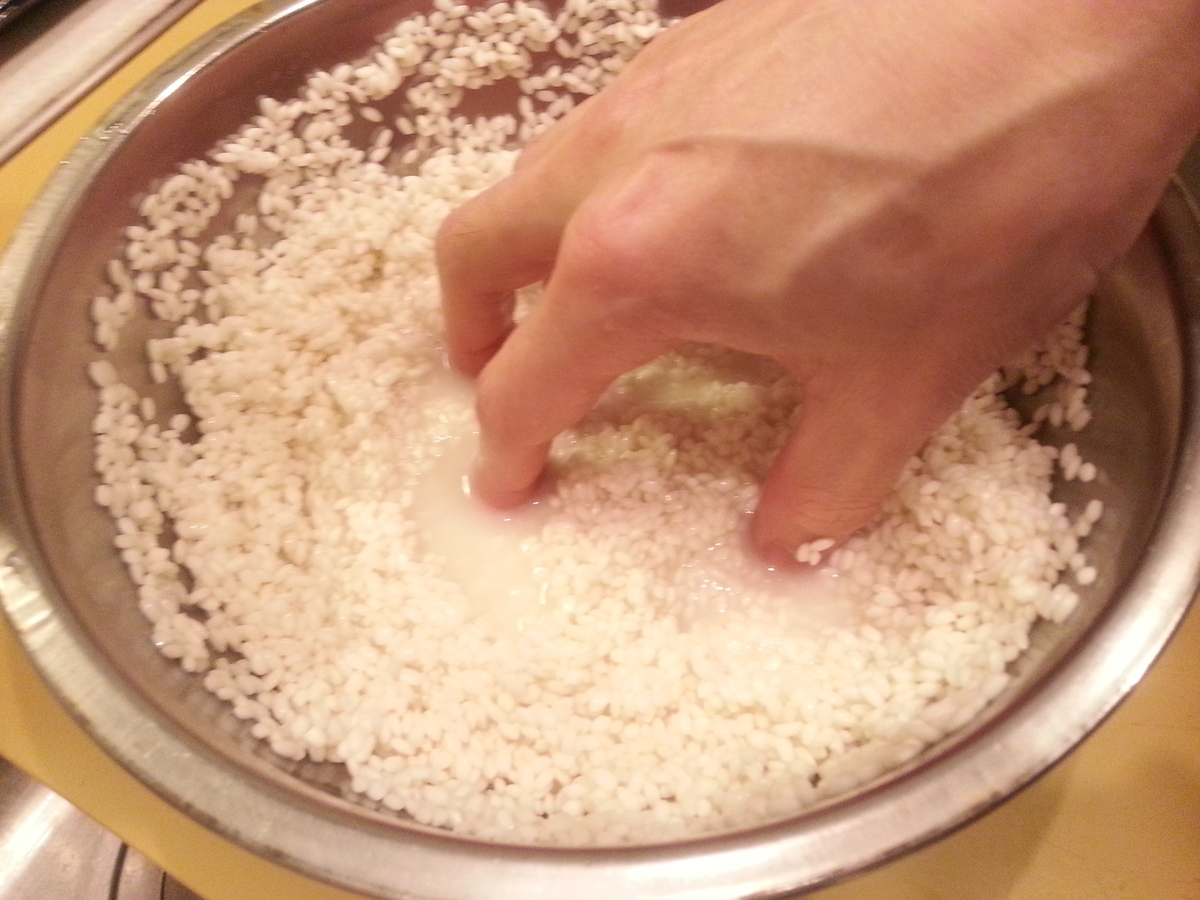
Wash the surface of the bamboo leaves with water as well. After washing, wipe off the surface water.
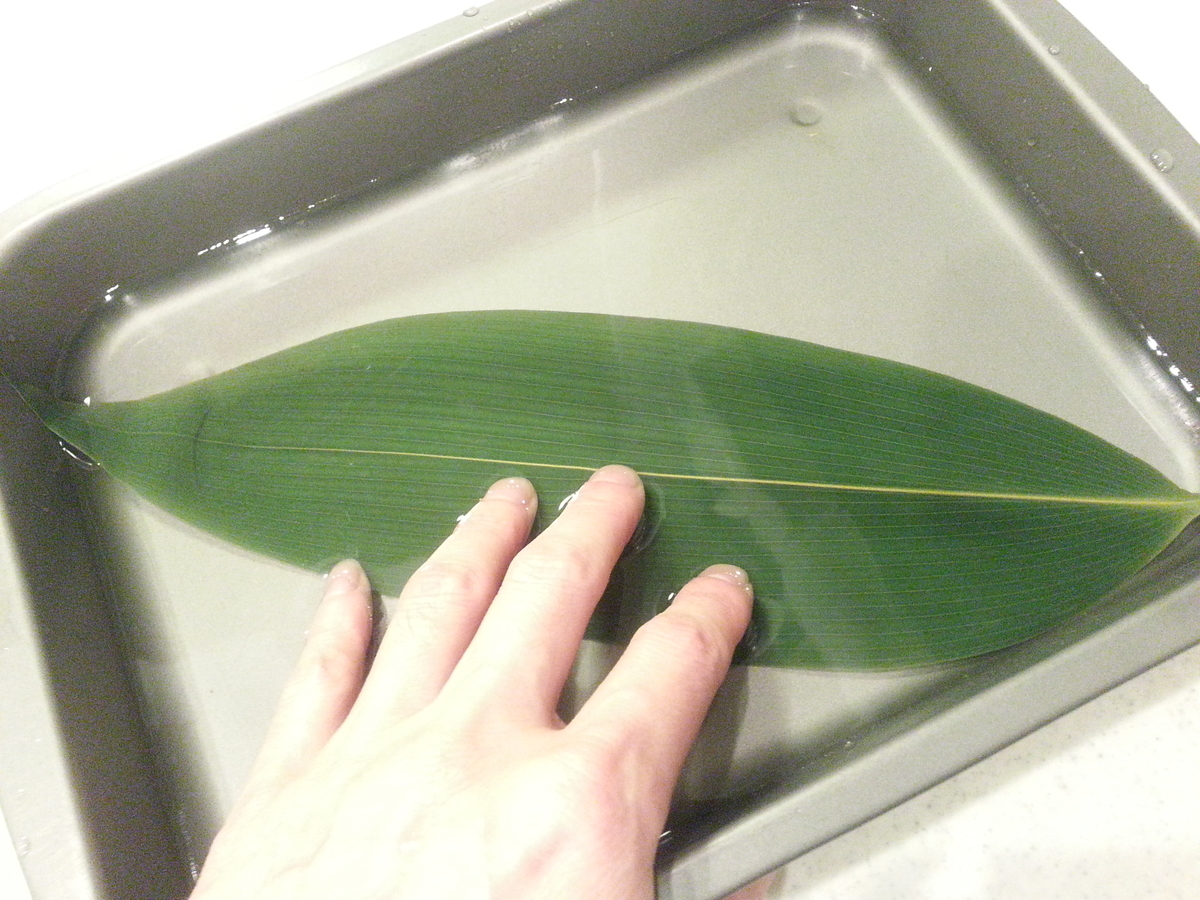
In a frying pan, heat the coconut milk, sugar, and salt.
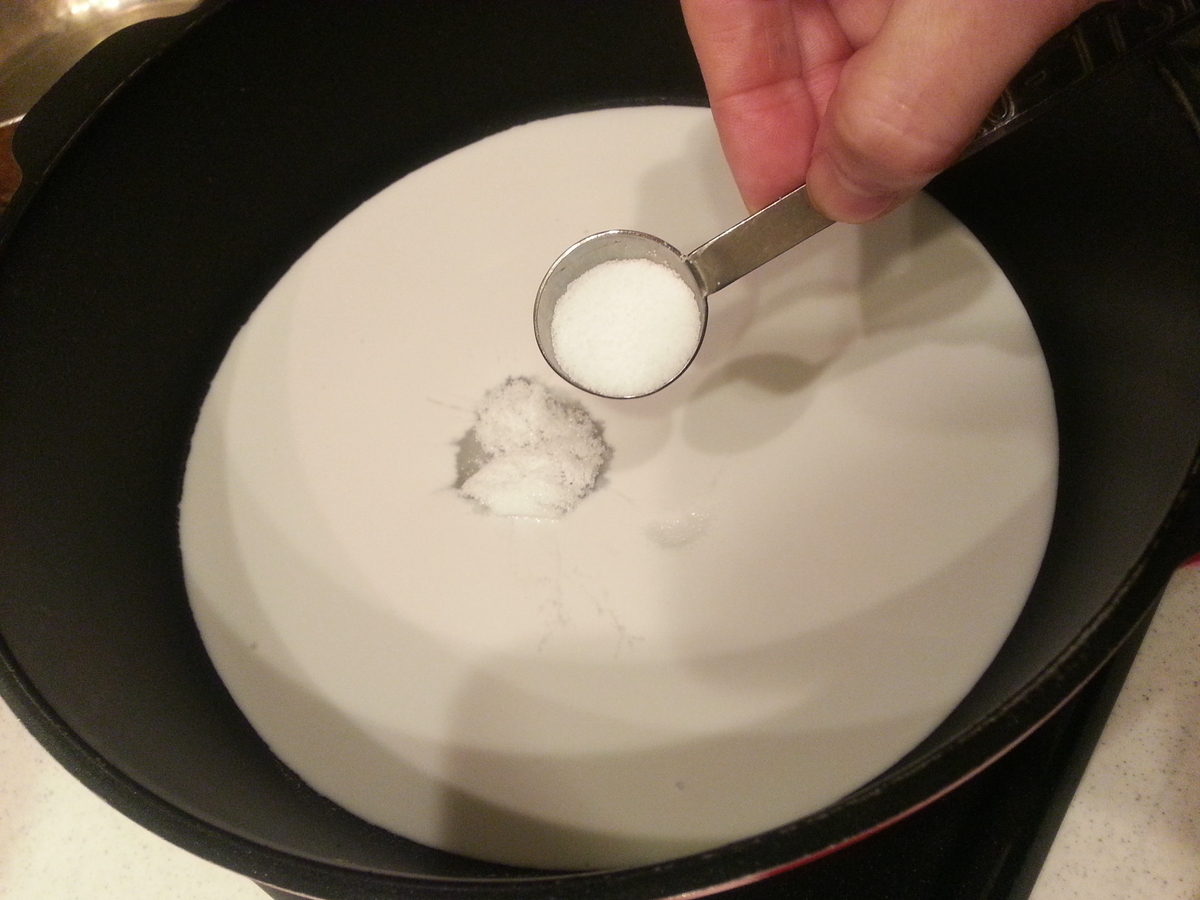
Once boiling, add glutinous rice.
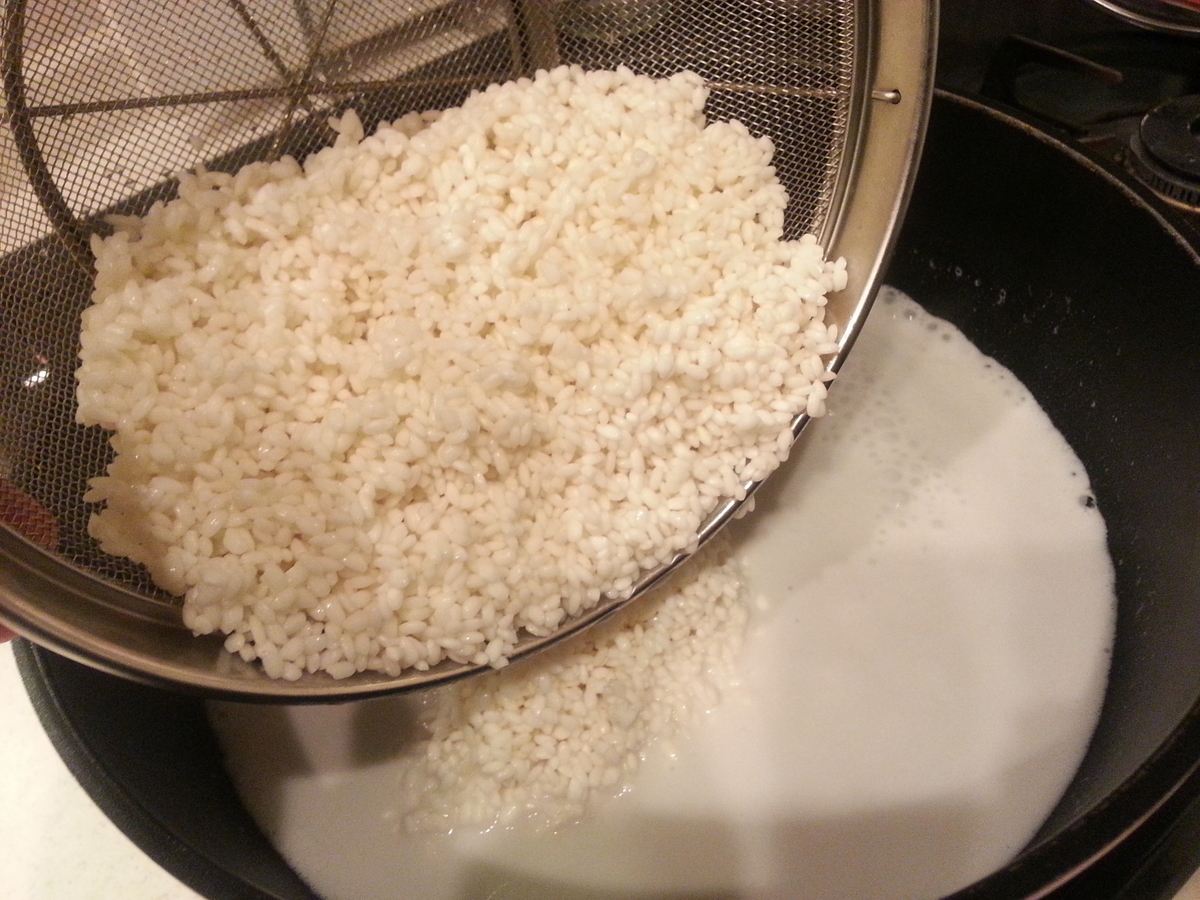
Cook the mixture, being careful not to burn it. This is the state after 5 minutes.
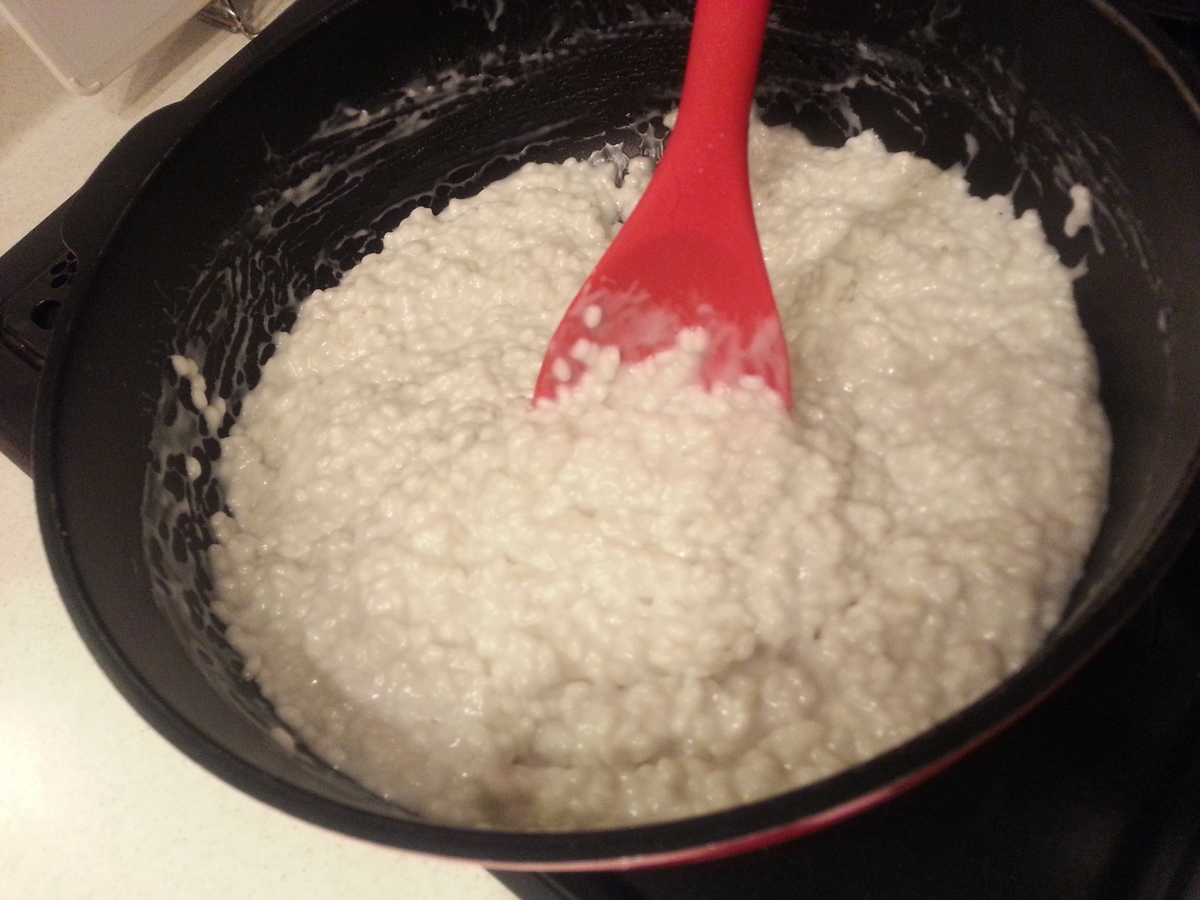
This is the state after 15 minutes. The water is gone and the mixture has become a sticky mass, so turn off the heat.
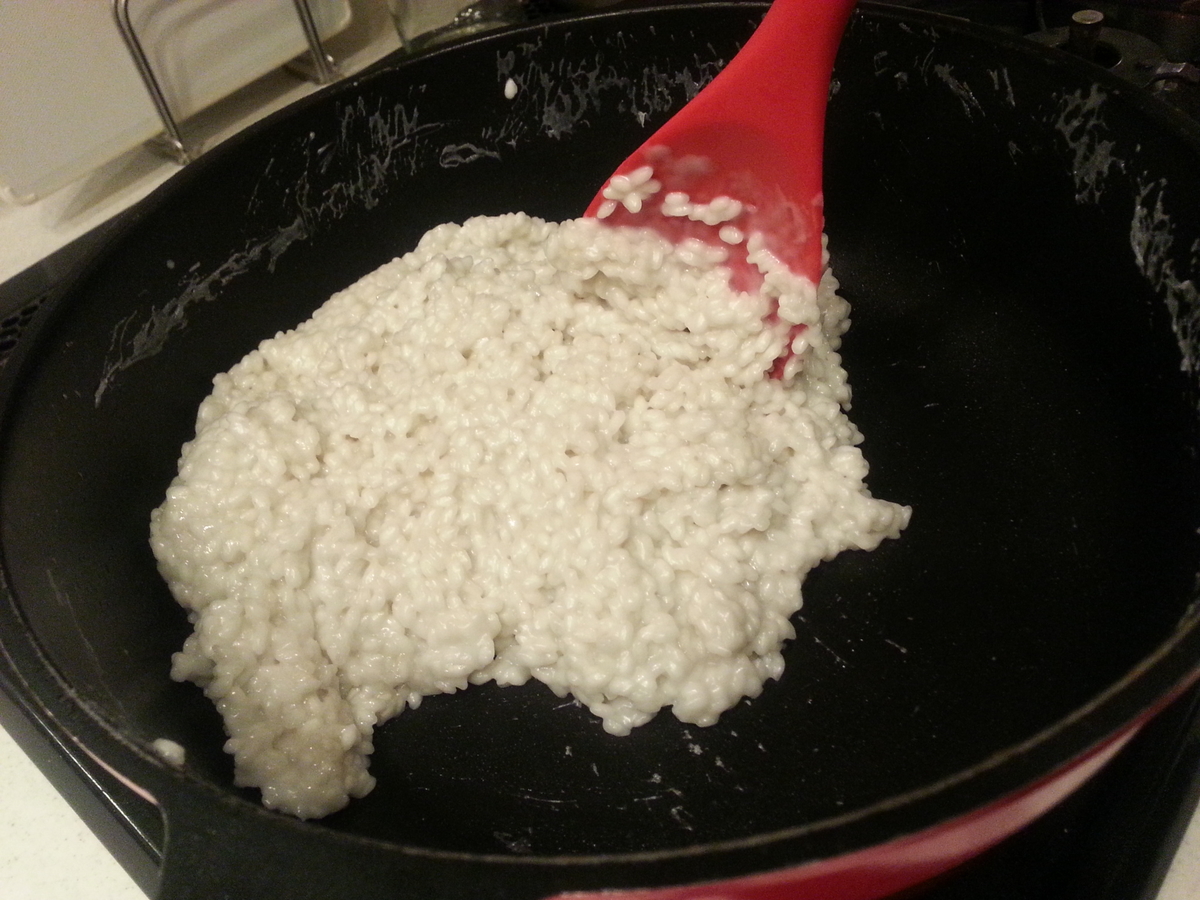
Remove from heat in a bat or bowl.
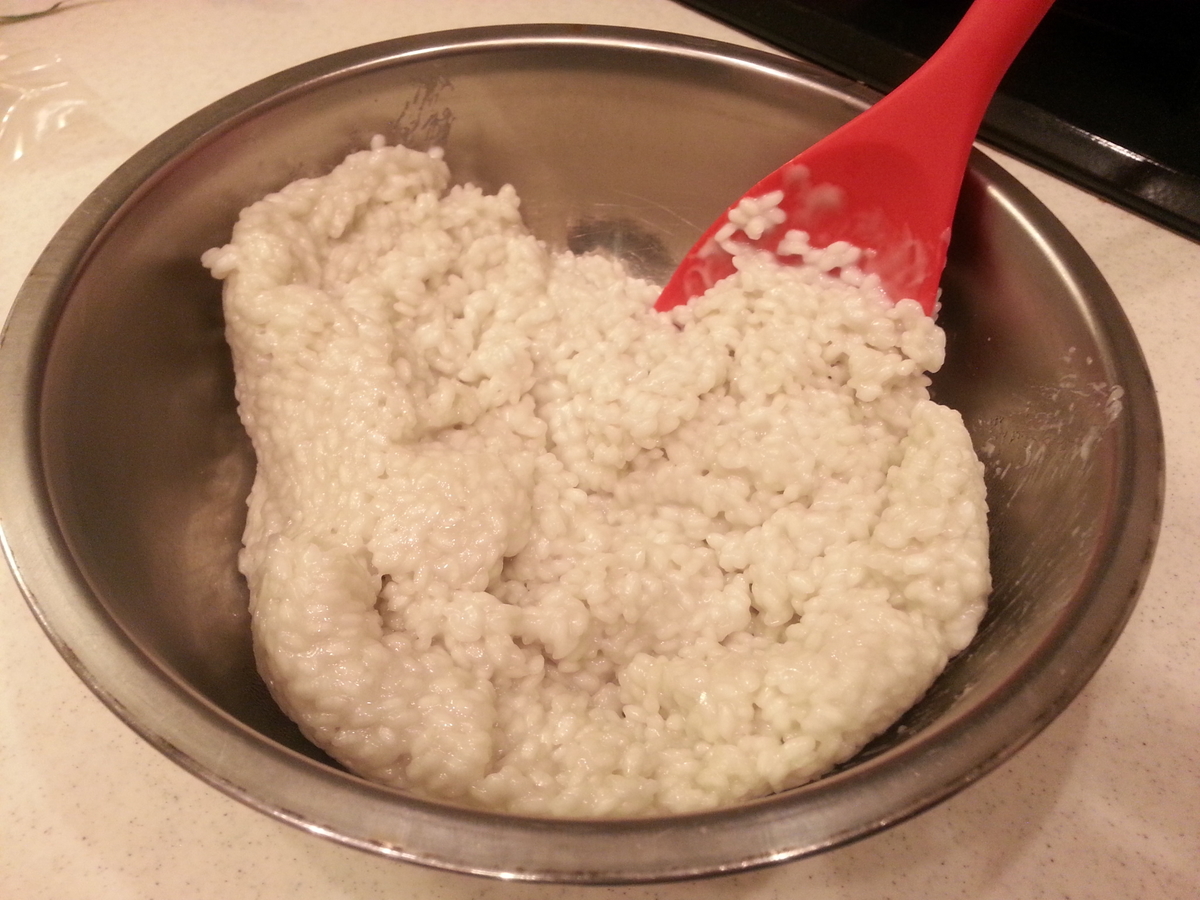
Here is a little fun. Dissolve food coloring (red) in hot water.
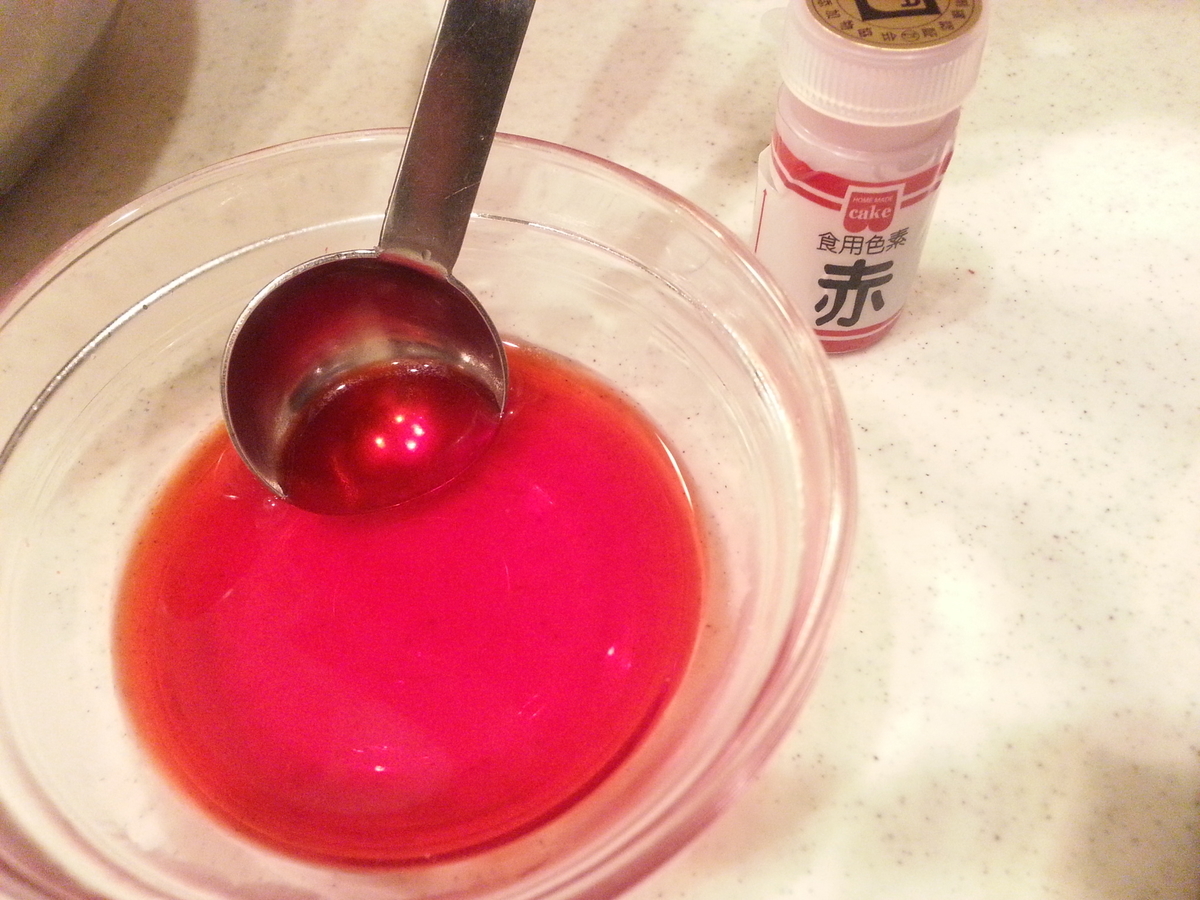
Some of the glutinous rice in the process of taking off the heat was separated and colored red.
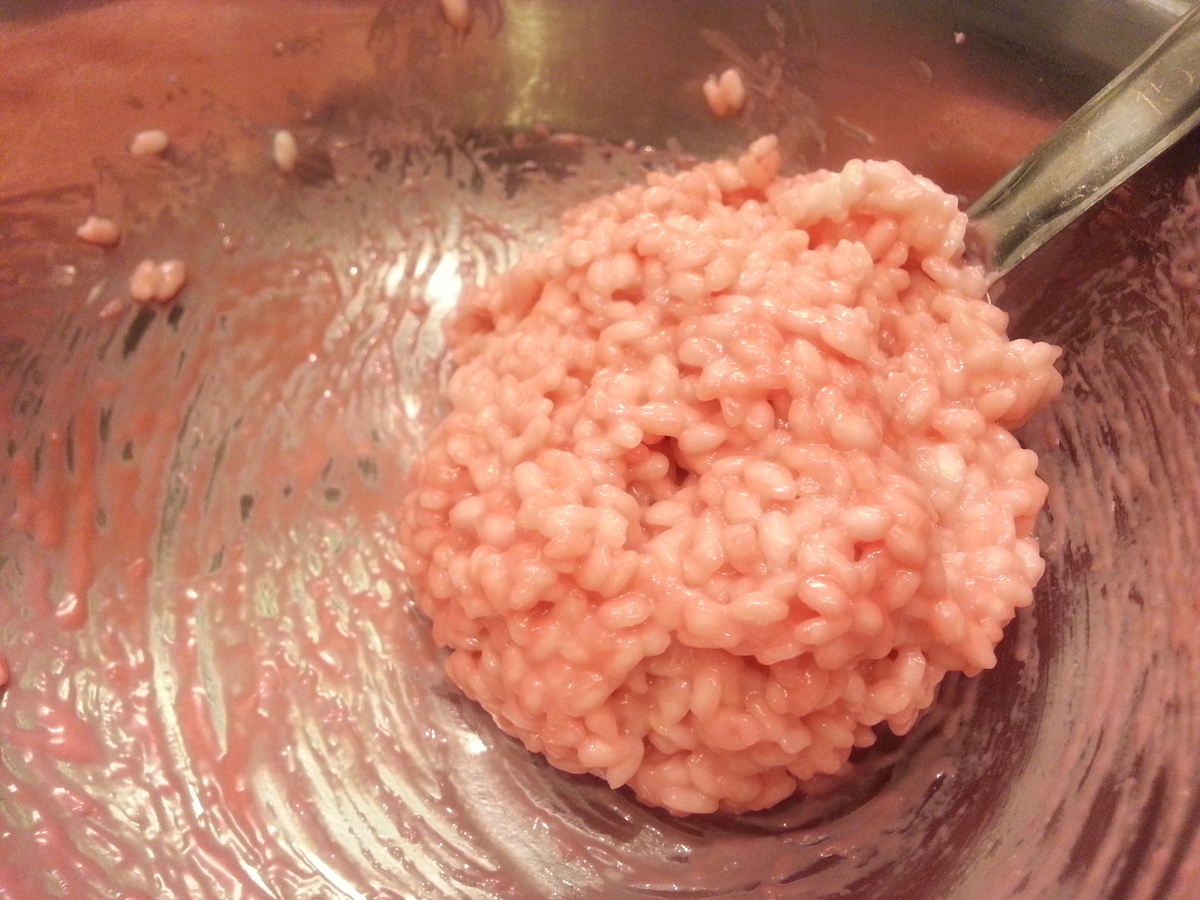
Next, wrap the cooked glutinous rice in bamboo leaves. Adjust the amount of wrapping according to the size of the leaf.
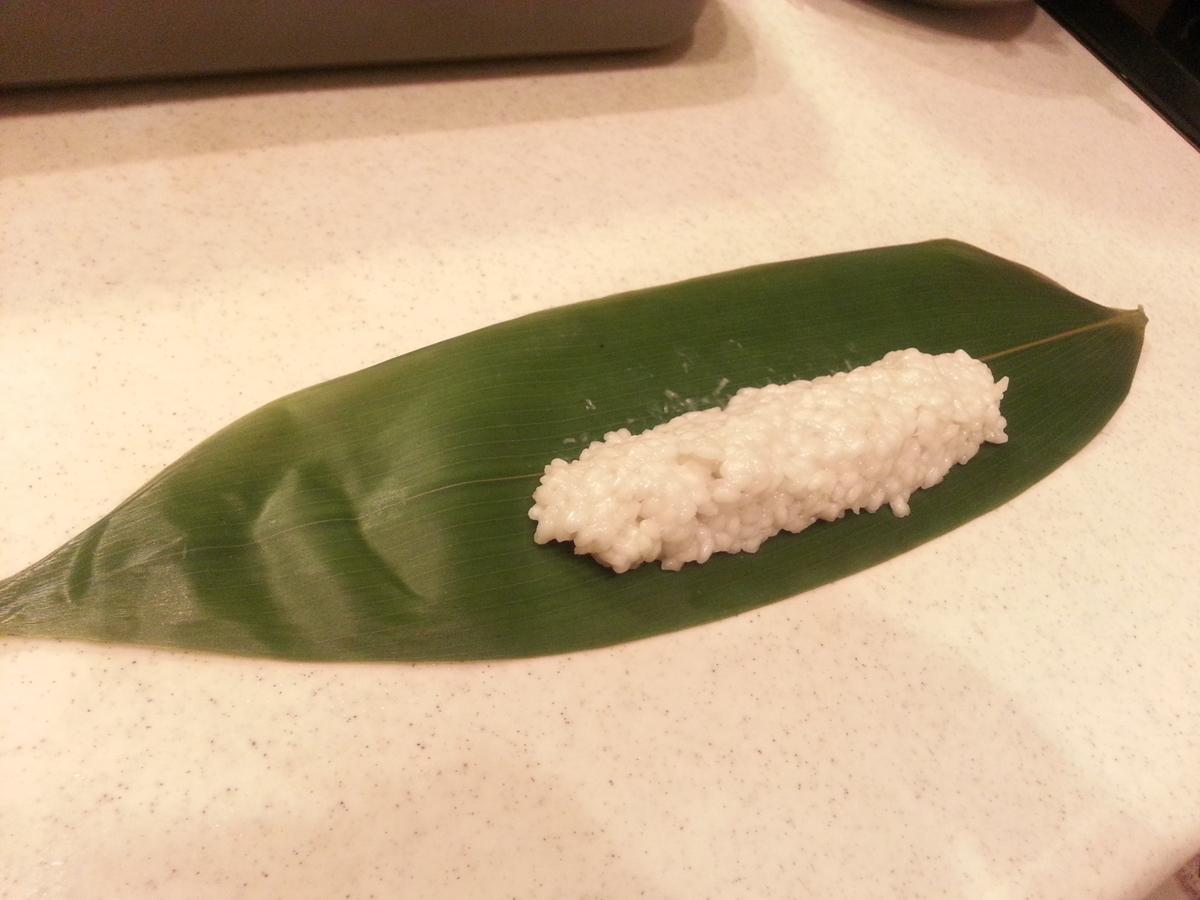
Wrap it around and fold the ends. You can tie it with a thread or something similar. This time, I did not use it.
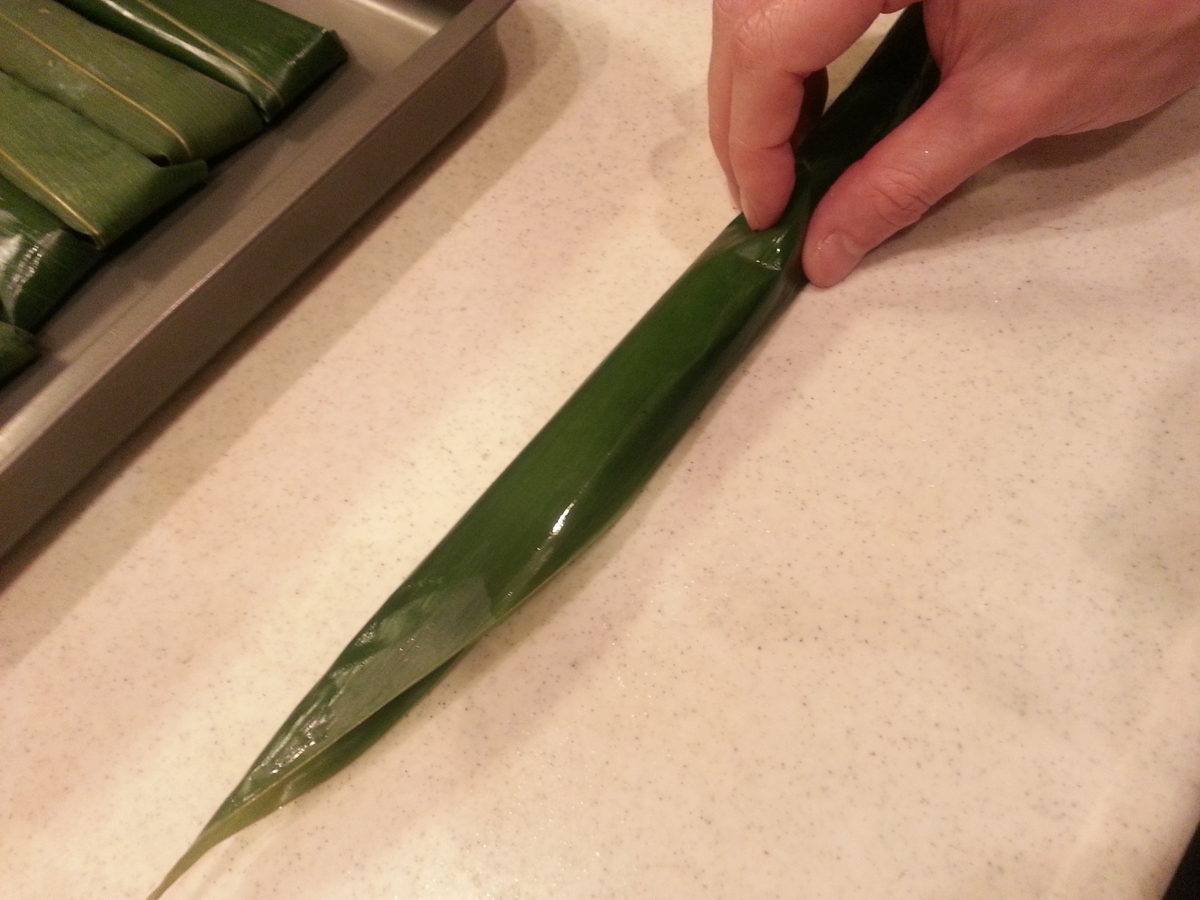
It is best to arrange them on a bat like this.
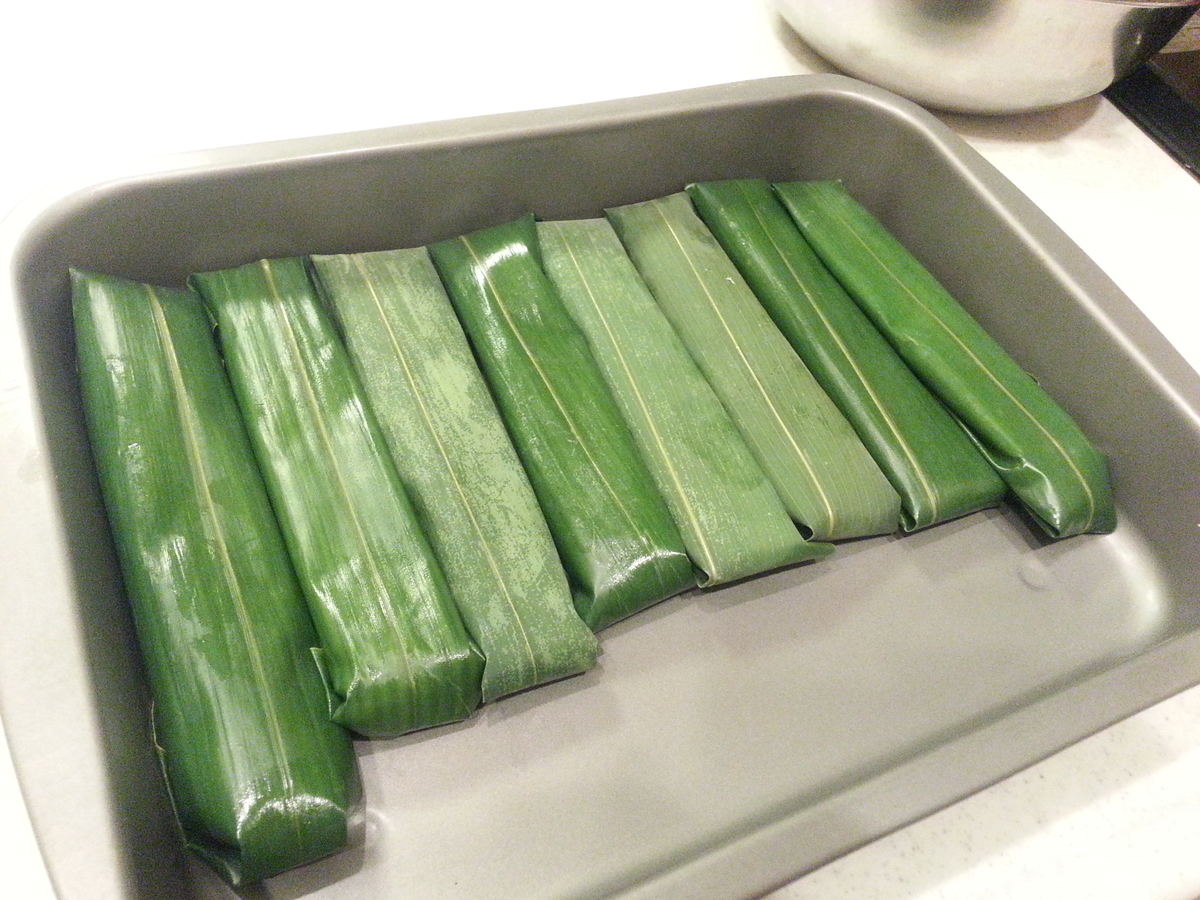
If you do not have bamboo leaves, a cookie sheet will be also used.
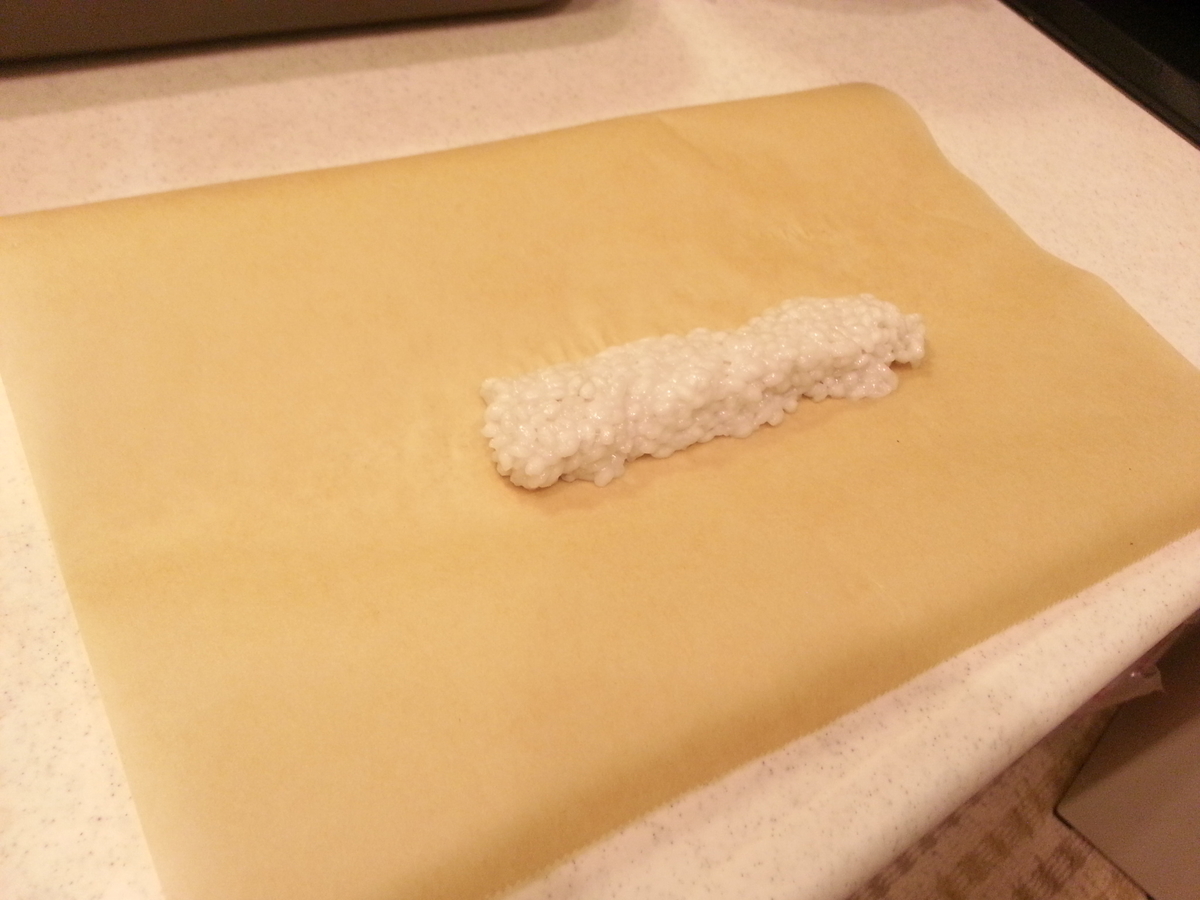
Place in steamer.
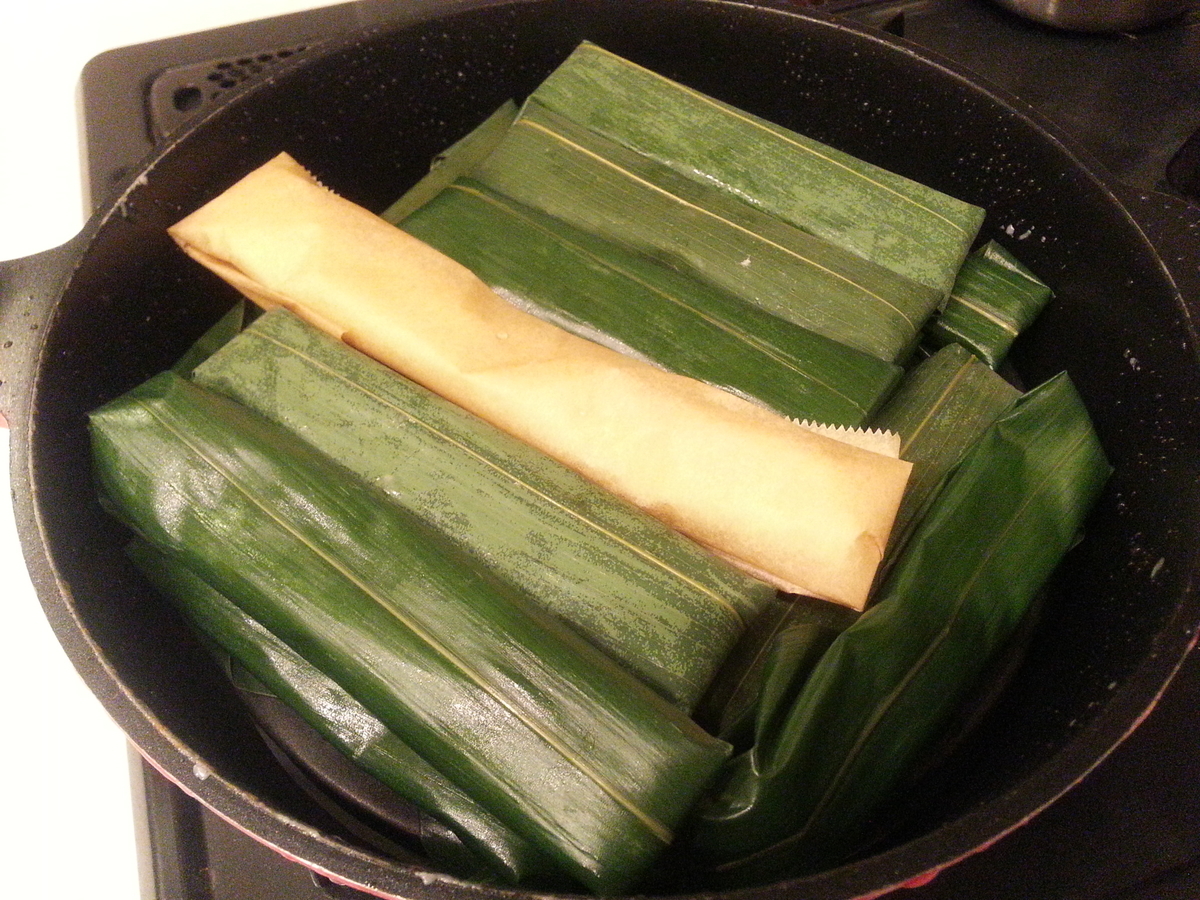
Steam for 50 minutes, being very careful not to burn the pot dry.
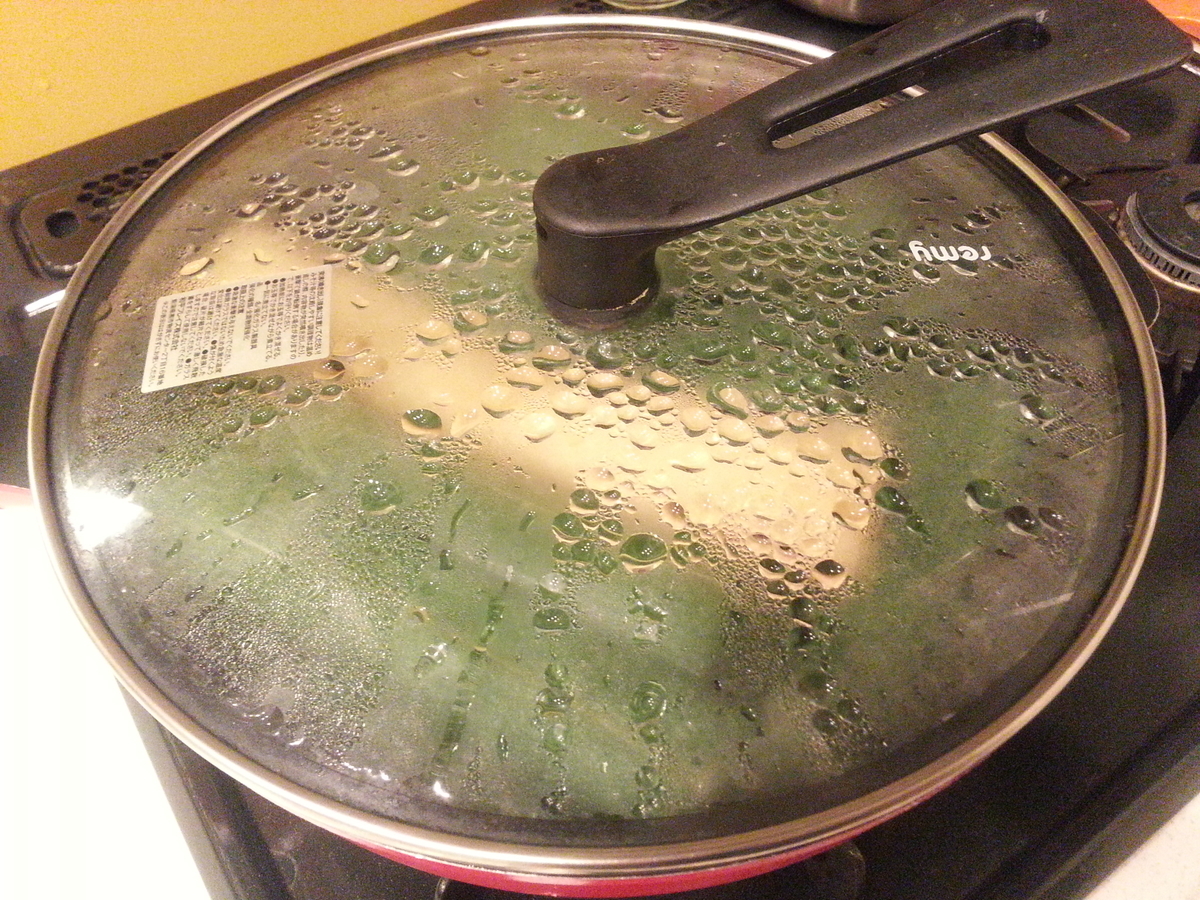
OK! it has steamed up.
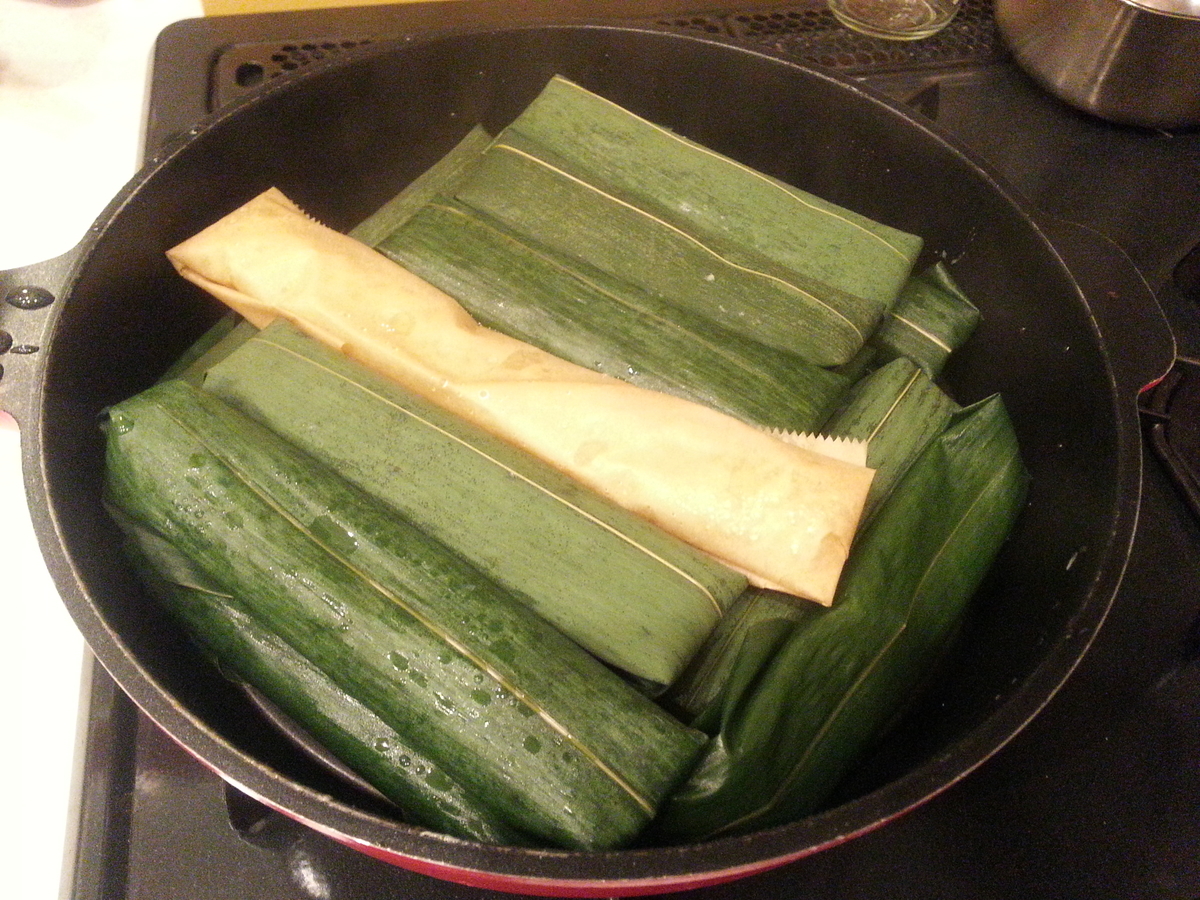
Well, let’s see what kind of condition it will be in.
Exciting !(^^)!

Wow, it is well done. The aroma of bamboo leaves is pleasant.
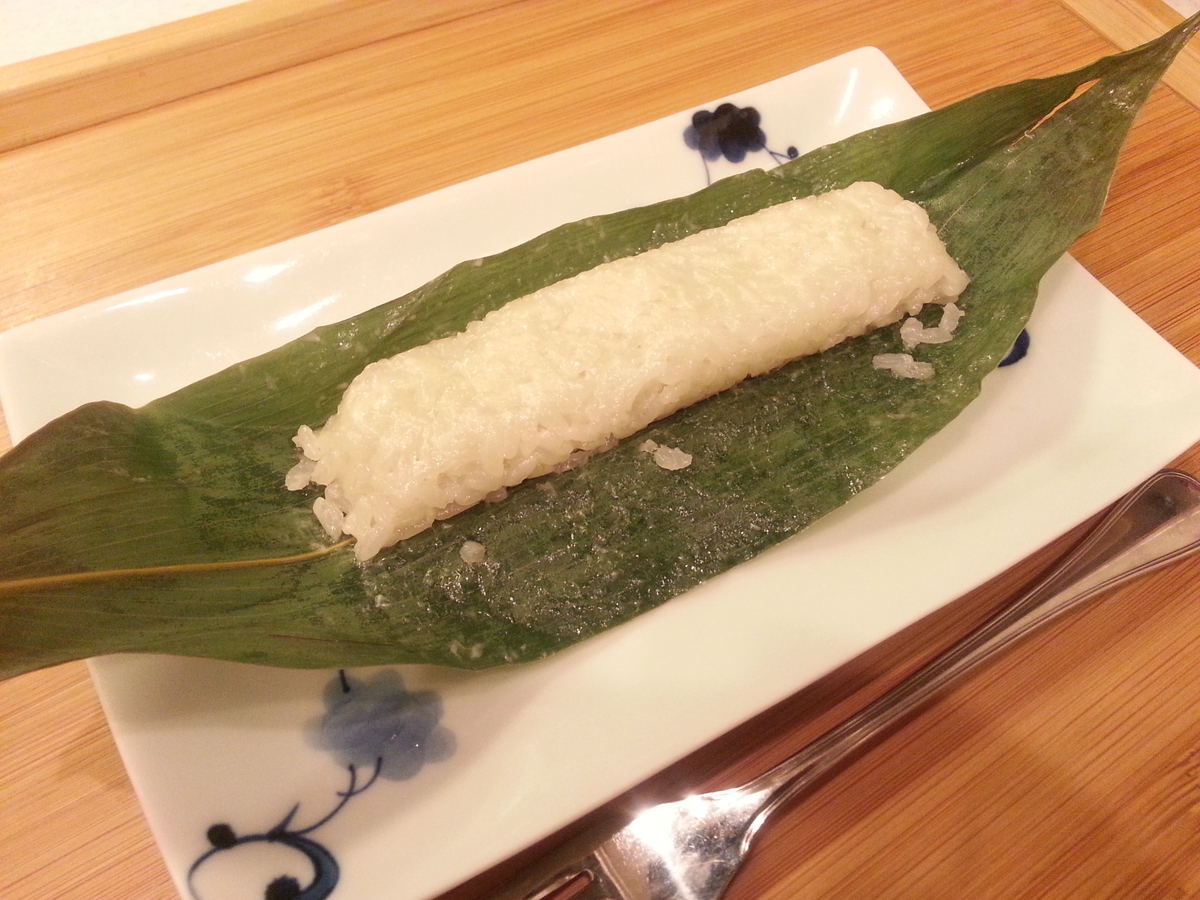
I can’t stand it, so I’ll take it.
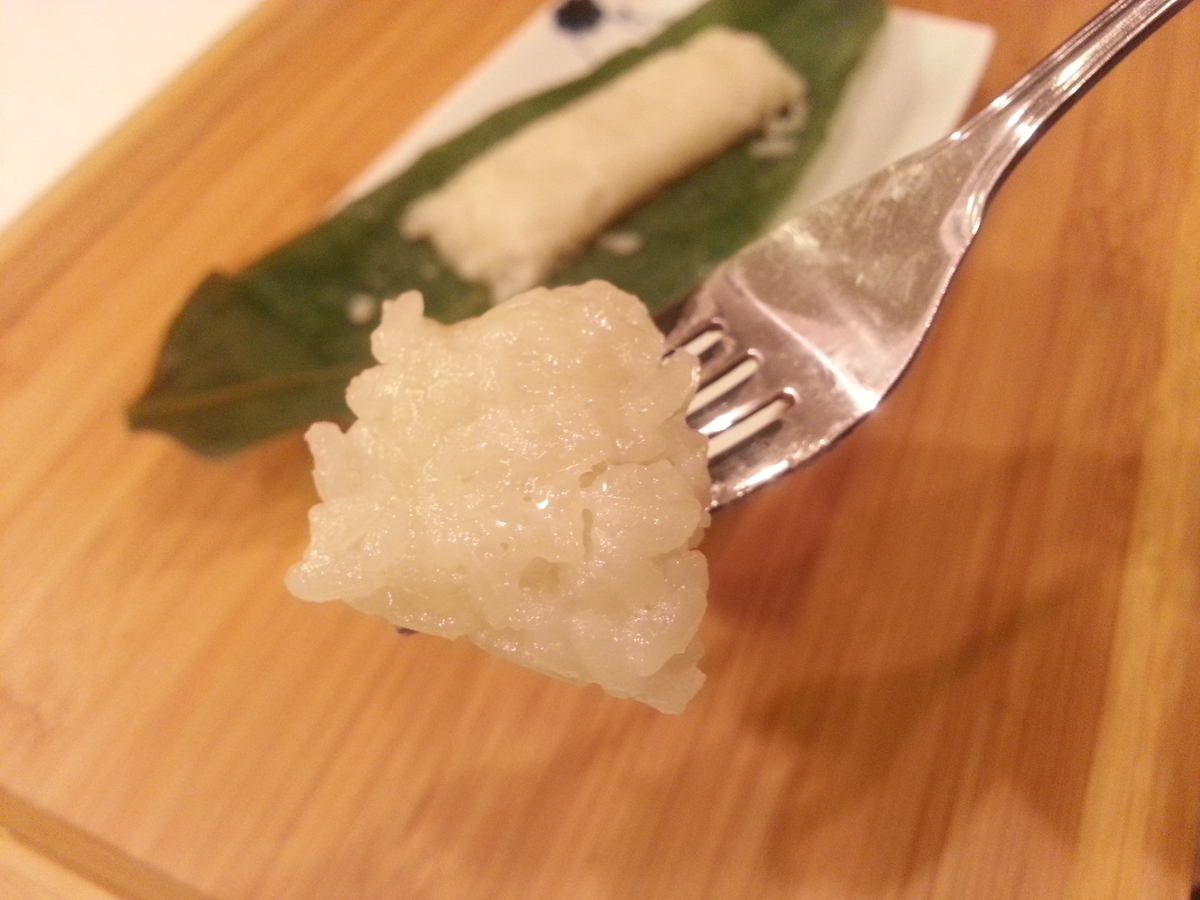
Rich in flavor of coconut milk. Pleasantly sweet with a dash of salt, very tasty!
The suman I made on the cookie sheet turned out great with no problems. The photo is a little hard to see because of the same color.
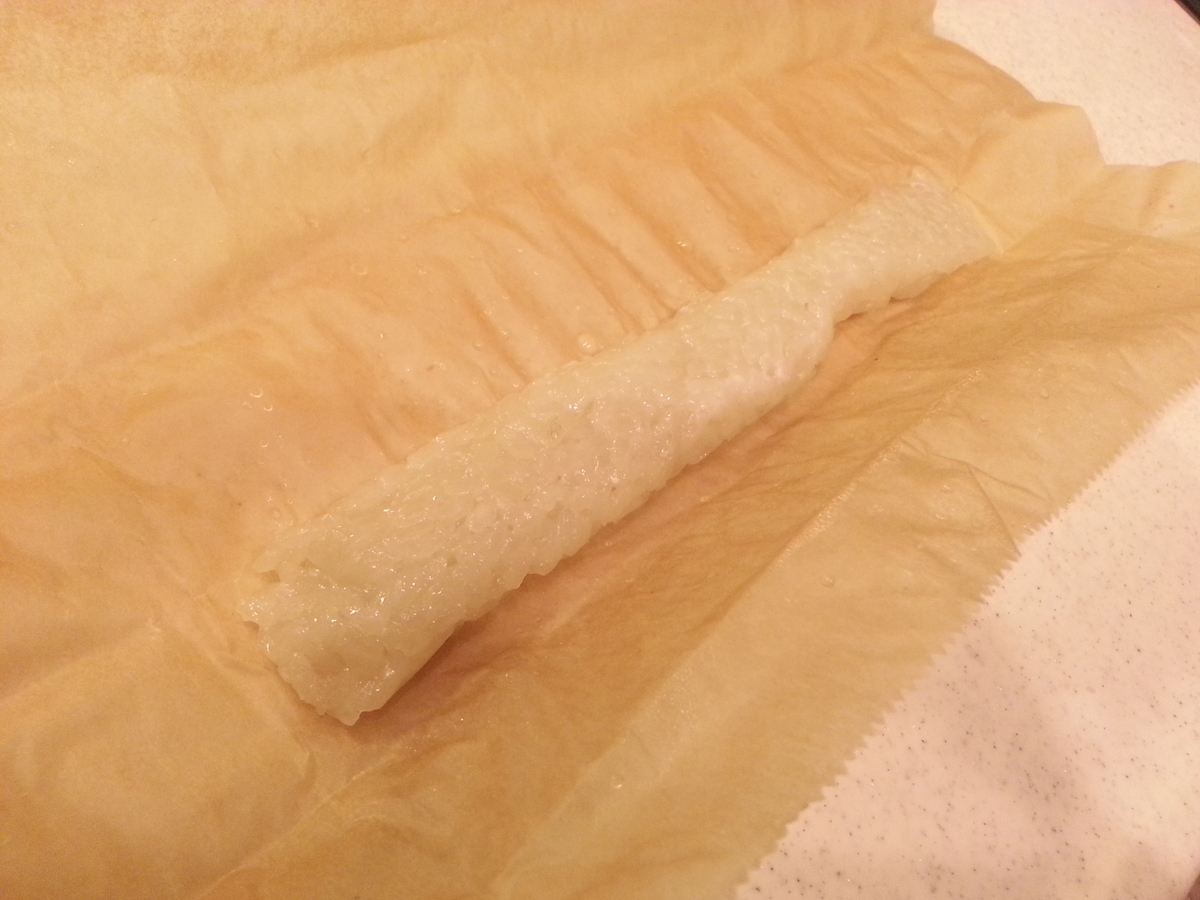
Then Suman with food coloring also turned out beautifully.
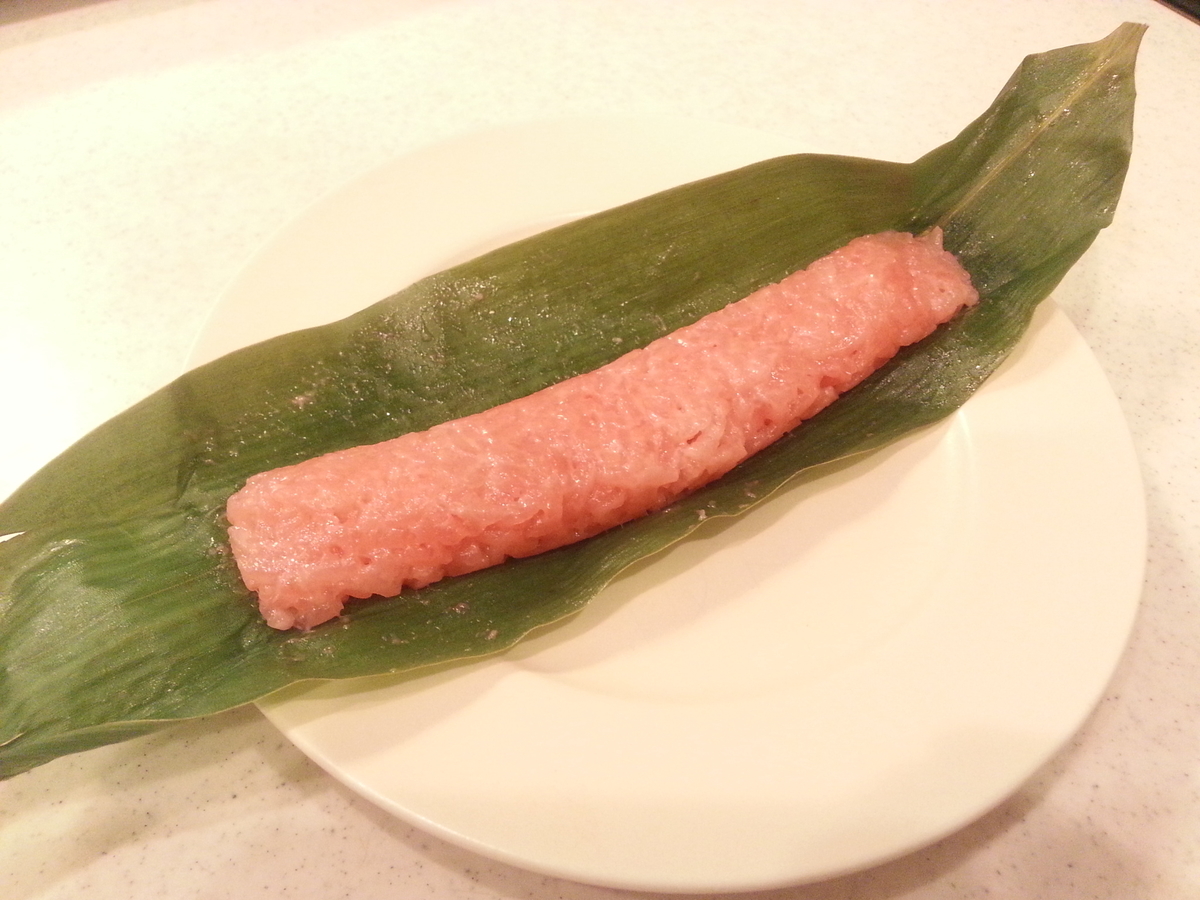
A little fun with serving. How do you like it? I aimed for a red and white color to create a festive atmosphere.
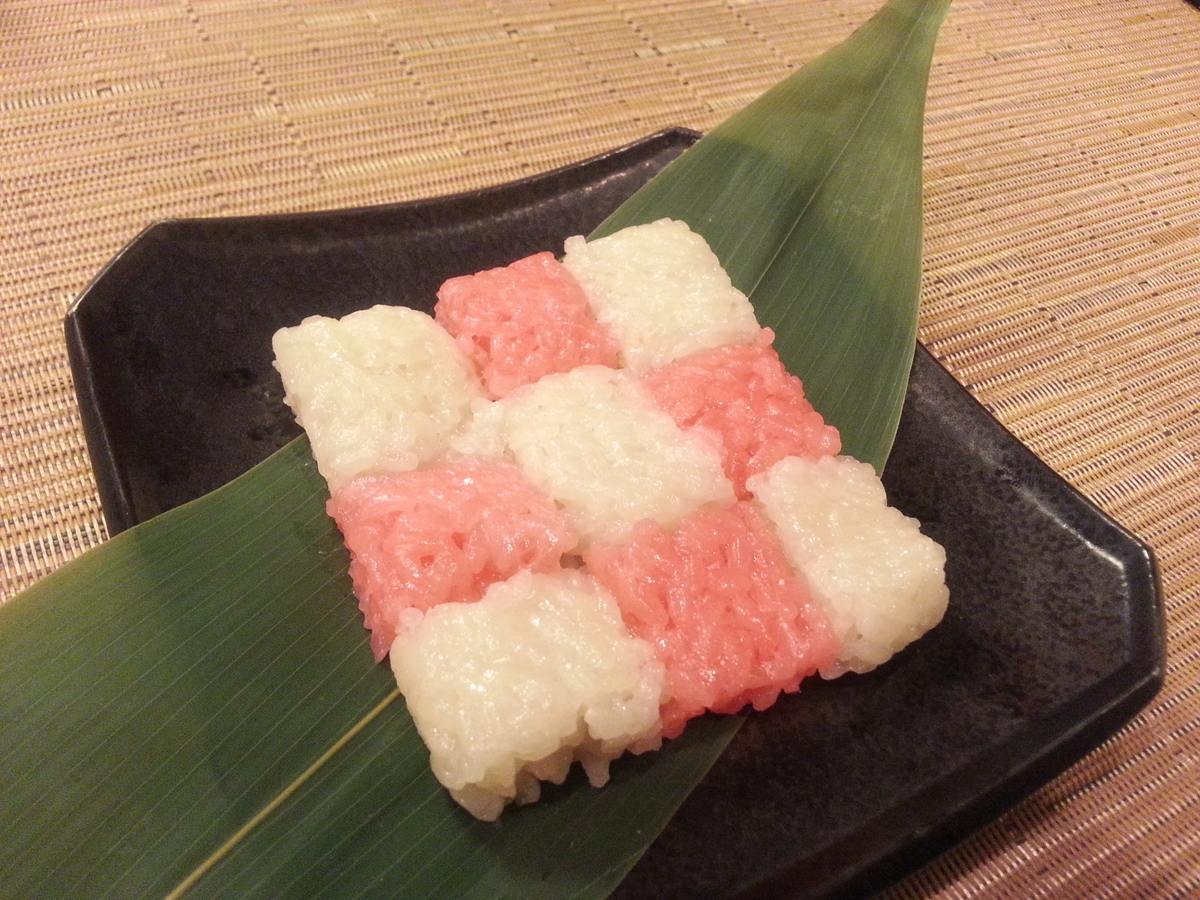
Filipino "Suman" arranged in Japanese style
”Suman” is delicious on its own, but you can also enjoy toppings to your liking. Here is an example.
The following are some of the sauces that can be used with Suman
- Sugar
- Brown sugar
- Latik sauce (coconut milk)
- Honey
- Chocolate sauce
Then I chose toppings that reminded me of Japanese rice cakes and dumplings. They tasted great and didn’t feel out of place!
【Suman & Yellow Soybean flour】
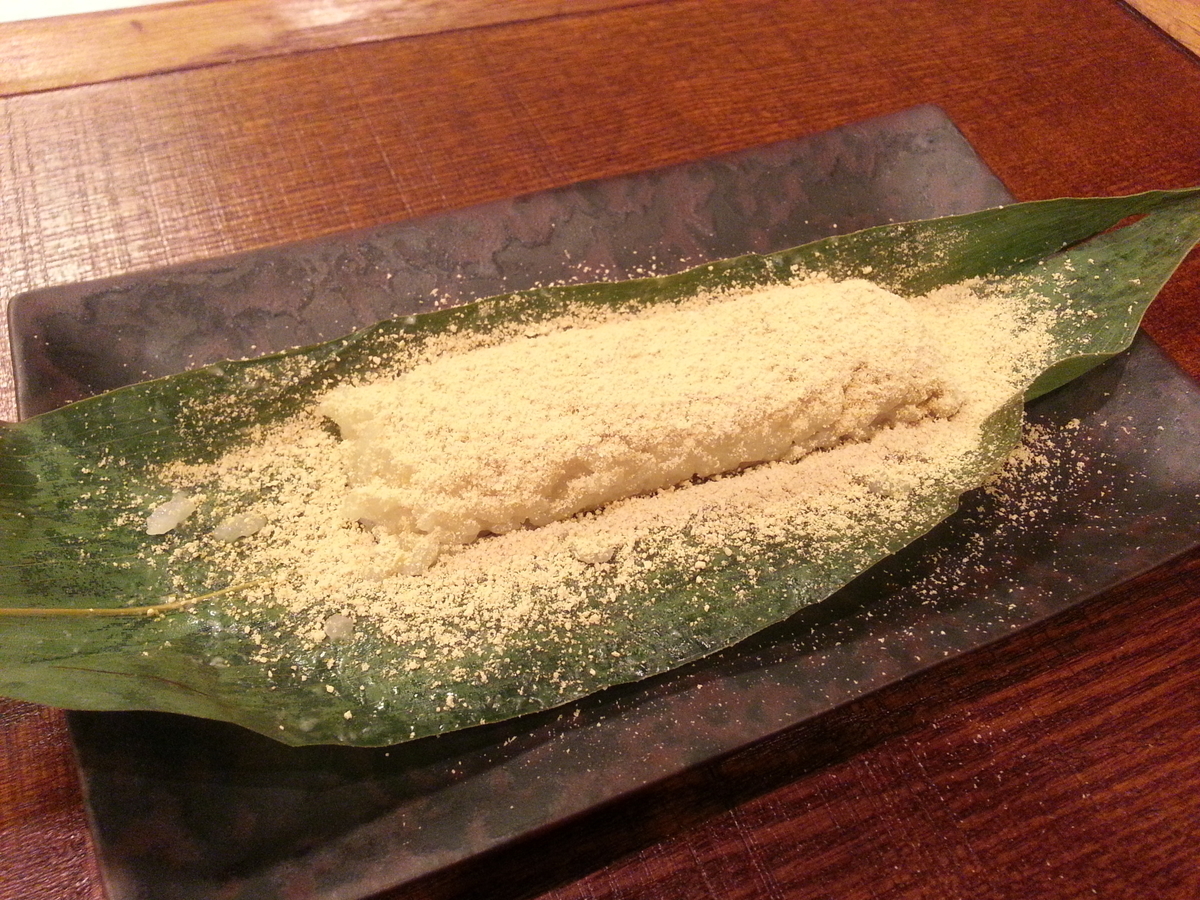
【Suman & Kuromitsu & Yellow soybean flour】
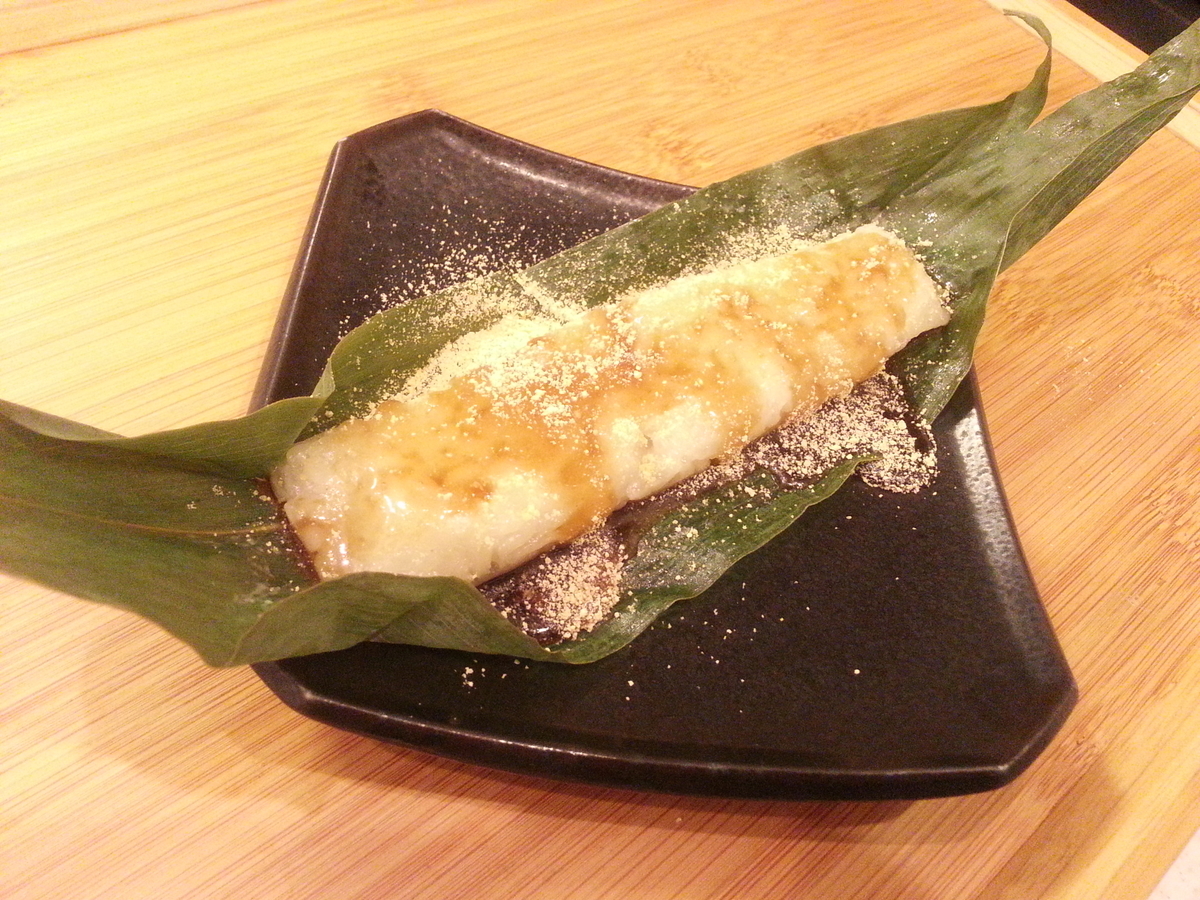
【Suman & Anko (red bean paste)】
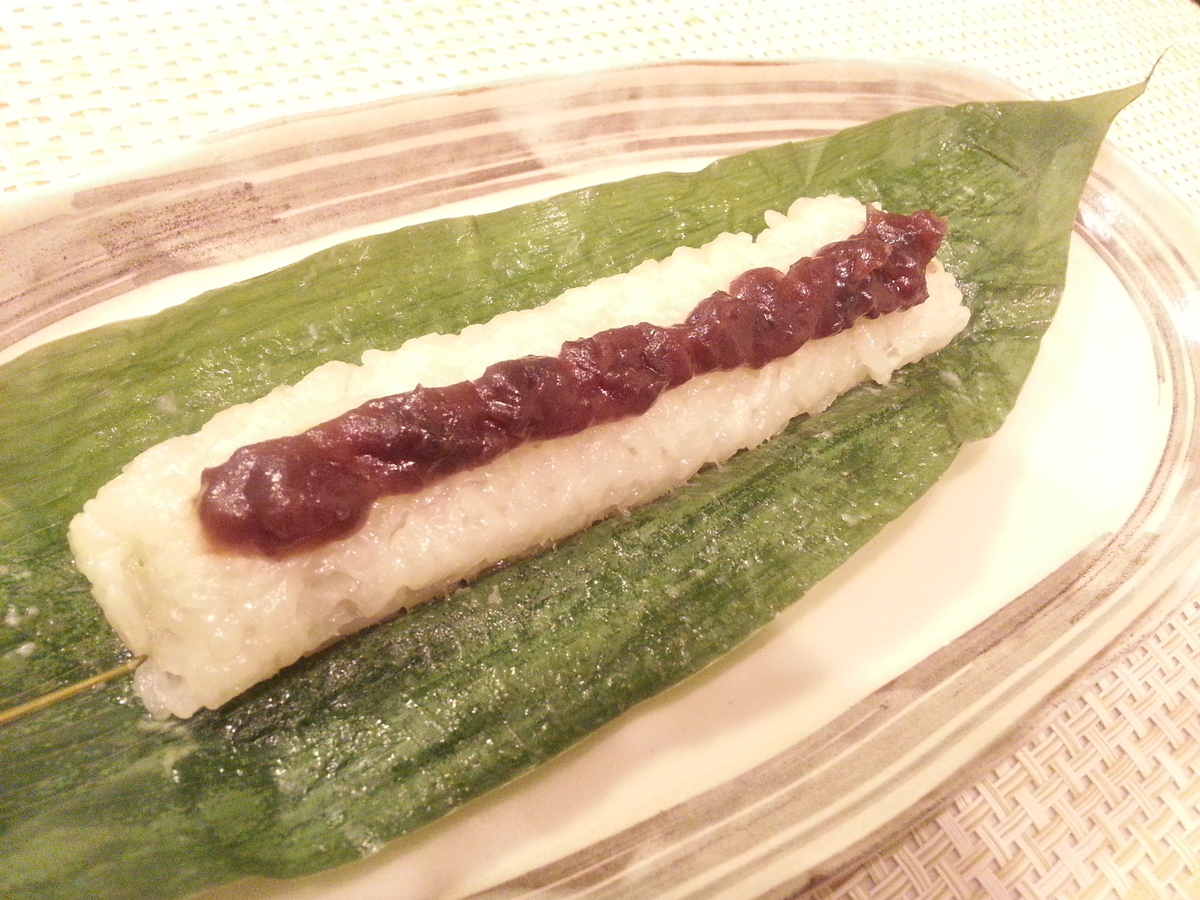
The Philippines and Japan join hands for the best sweets(^^♪
Storage can be done in the refrigerator with the leaves wrapped. To soften, they should be heated gently in the microwave before eating.
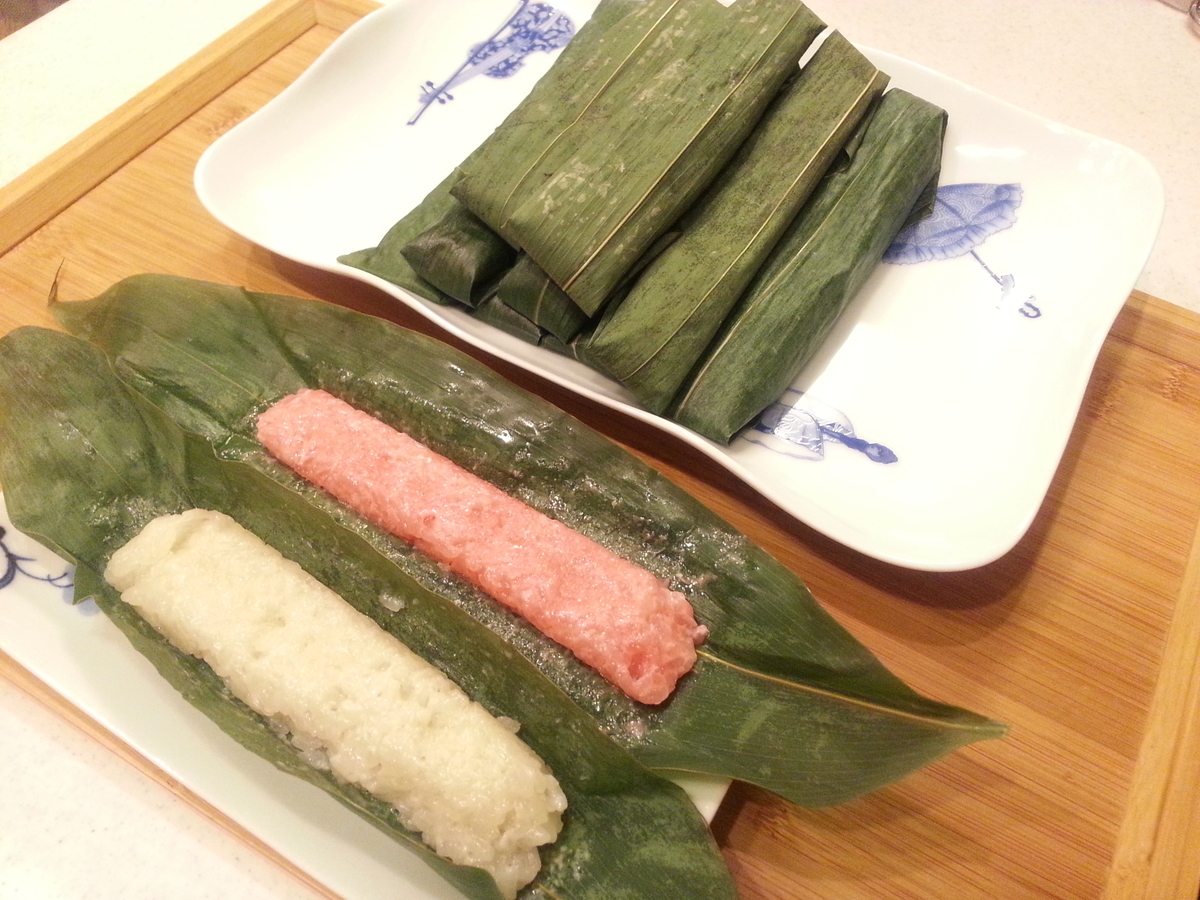
I hope the Philippines and Japan will always be able to get along like Suman did this time. I didn’t know that Suman and Anko go well together!
=スポンサーリンク=
Summary
In this issue, I introduced how to make Suman, a classic Filipino sweet. Richly flavored with coconut milk, this snack is similar to “chimaki” in Japan. It was very satisfying as it went well with Japanese ingredients such as yellow soybean flour and anko. Please try it!
These articles are also recommended.
Various Filipino dishes and how to prepare them are introduced here.

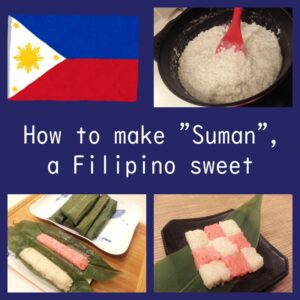
コメントお願いします(※は必須項目)